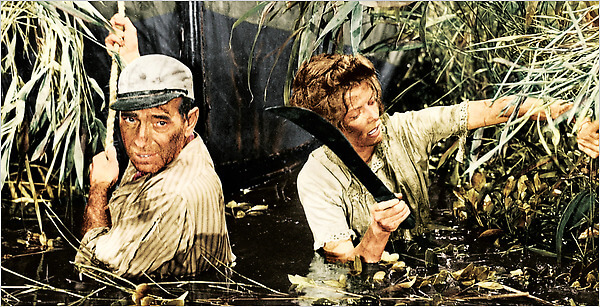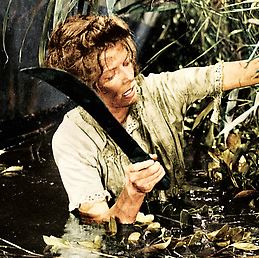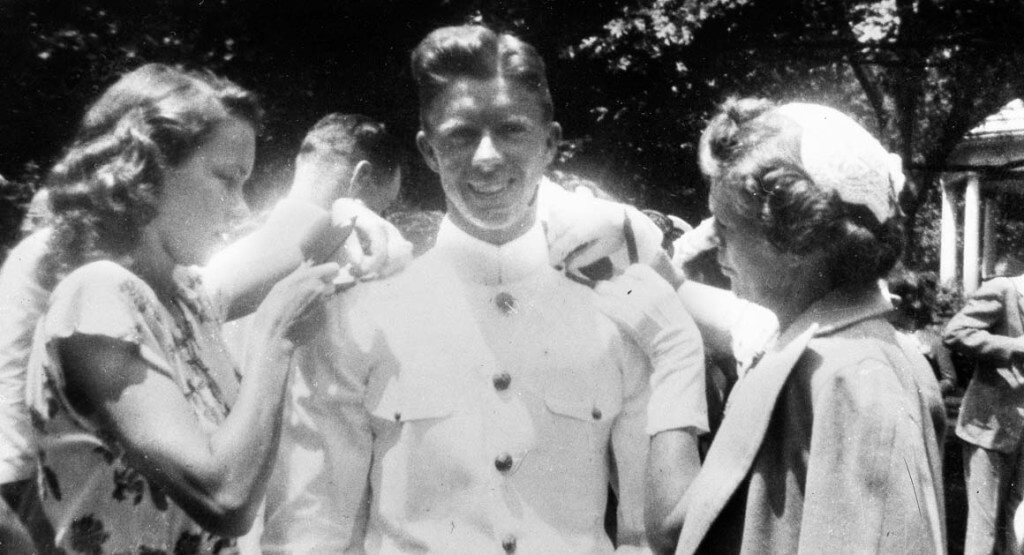NOTE: (November 11, 2016) On 11-9 news outlets declared Donald Trump the winner of the 2016 presidential election. Hillary Clinton won the popular contest by three million votes over Trump. Trump lost the popular contest by 11 million votes overall due to third-party candidates who drew away votes that might have changed the outcome.
Hillary carried 88 of the 100 most populated counties. In the history of USA elections, only Barack Obama has received more votes.
Jill Stein and Bernie Sanders siphoned 2.5 million votes. To win, Hillary needed 55% of the white female vote in Michigan, Pennsylvania, and Wisconsin; she got 53% according to exit polls.
Who knows?
What is certain: had Hillary received 100 thousand more votes in those three democratic-leaning states where voters cast 13 million ballots; had she gathered another one-half percent of the combined total in the three states, the electoral college would have tipped in her favor; she would be the president-elect.
With a multitude of third-party candidates staying in the race, Clinton couldn’t win in the electoral college. Trump, for his part, received 11 million votes less than Hillary and third-party candidates combined.
The election result is unfair and debilitating to the ideals of government we hold dear. Billy Lee believes that the result will prove to be catastrophic to the country we love; to the country many have given their lives to protect and defend. It is a sad end to democracy as we know it.
The good news is that people don’t seem to care — so no harm done; at least not yet. Does it matter to anyone at all that the USA may soon collapse; that our citizens may have voted in the last somewhat fair election?
Most informed people understand that no way exists to hold fair elections. Elections that approach fairness are possible when candidates follow the rules. Collaborating with foreign governments like Russia and Israel is not only unfair, it’s illegal.
So what difference does it make this time around? Statistical analysis points to tampering in some districts. Recounts were stopped by the GOP in every state. Is it possible that our most recent election was not fairly counted?
We may never know.

9 Sept 2018
NSA employee Reality Winner is now serving 5 years in federal prison for providing the press with NSA documents that confirmed vote-counting fraud.
The Editors
From our lofty vantage point, it looks like nothing really matters. Life goes on, as it always does in a world that has never been truly free or democratic and may never be.
Brave women got hurt again by powerful men. It’s not new.
The Editorial Board
Hillary Clinton is going to be the Democratic nominee for president in 2016. Does anyone think it can be otherwise? Donald Trump will run against her. Does anyone imagine that this billionaire standard-bearer for the new Confederacy is going to abandon politics and flee peacefully into the night? Of course not. Hitler didn’t.
The war of the alpha-male verses the diminutive-submissive-female has waged for tens-of-thousands of years and the outcome is always the same: men start and fight wars; men write laws; men write scripture; men dominate and abuse women. The women who object; who say no; who stand their ground, men label witches; they burn them at the phallic stake.
Taylor Swift wrote — in her song, Blank Space — “Boys only want love if it’s torture.” Really. The history of male-female relationships on planet Earth is sickening. It’s disgusting.
Men demand compliant females, and they use their intellect and imagination to invent sadistic systems of social intercourse to push women and girls into the most precarious and perilous predicaments of powerlessness imaginable. (Are there too many p’s and s’s in the last sentence? Am I starting to rant?)
I’m fed up. I’m fed up with myself and my own personal history with women and girls. I’m fed up with the alpha-males who trash the planet and destroy lives — all because they like to play with gunpowder and rockets and bombs and hi-tech weapons for a thrill they get, apparently, from testosterone-gone-wild. (I am ranting; forgive me.)
We have reached the place in our history as a species when violent, well-meaning but pumped-up men are going to get us all killed — while they poison the planet to extinction — if we don’t change a few things. Time is running out; it’s time for changes, right now.

- Hollywood gave us a vision of a man and a woman working as partners to survive against overwhelming odds in a hostile environment designed, it seemed, to utterly destroy them. From the 1951 classic film, African Queen.
OK. I’m going to calm down. I guess I got emotional, because I hate how they hurt Obama; and I know they are going to hurt Hillary. It’s hard to watch the bullies and the haters spew their venom day after day, because they believe — way down deep in their carnivorous second-amendment-loving souls — that if it ain’t white and male, it’s un-American.
Does Hillary Clinton have the sense to protect herself by appointing a female running-mate? Selecting a progressive like Elizabeth Warren could help diminish a temptation some men might feel to make a violent adjustment to the voice of the electorate; an electorate that may already be completely ready to approve a bi-female ticket; most likely in a landslide of epic proportions.
Six years ago, Jimmy Carter, our thirty-ninth president, got fed up and wrote a letter — to a journal most folks never heard of — about the abuse of women in the church and in the world. It was ignored at the time. A few months ago, in April 2015, the letter resurfaced, passed into cyberspace and went viral.
The Pontificator is reprinting it here for readers who didn’t see it in 2009 or don’t remember it. It has provided a link to the original opinion-piece at the end of this essay, because in this version the Editorial Board redacted a few words to protect sensitive readers; mostly children.
What we reproduce below is Jimmy Carter’s explanation of the reasons why he resigned his affiliation with the Southern Baptist Convention — an organization where for years he played a prominent role. He shares his painful experience to give courage to those who dare to stand up for others who are devalued, shunned and excluded from prominent roles, because God made them female; because the alpha-males in the SBC who exercised authority interpreted Scripture to maximize male-privilege.
President Carter writes that the SBC adopted policies that devalued women and excluded them from leadership — no exceptions permitted. No one has to agree with all of the former president’s reasons — or any of them, for that matter. The Billy Lee Pontificator Editorial Board most certainly does not agree with everything he wrote.
I am reprinting his article, because I have always admired Mr. Carter; even before he became president. Jimmy Carter is the only president we’ve ever had who never killed anyone or ordered anyone killed. Correct me, if anyone can prove me wrong. No one can.
Jimmy Carter’s feat of non-violent pacifism is as spectacular an achievement as any human being can accomplish who directs a country as militarized and corrupt as our own.
In 2002, former President Carter won the Nobel Peace Prize, because, among other accomplishments, he established in 1982 the Carter Center, which became a powerful catalyst for the world-wide advancement of human rights and the alleviation of human suffering.
Someday, probably sooner than later, Jimmy Carter will die. It’s because he’s old. He’s ninety-one. Aging presents a person with a lot of challenges, some of which are difficult to articulate; difficult to explain. Getting old changes us. Some discover a clarity of thought and moral insight they never dreamed possible in their youth.
Getting old has it’s downside, too. No one likes it. But as my dear dad used to say when he was alive, Old age sure beats the alternative.
What follows below are the words of our thirty-ninth president, Jimmy Carter:
Billy Lee
July 15, 2009
THE AGE Federal Politics
Wife Rosalynn Carter and his mother Lillian apply Jimmy Carter’s officer insignia bars at the U.S. Naval Academy. Thirty years later he ran successfully for president of the United States (1977-1981). He won the Nobel Peace Prize in 2002. (AP Photo)
I have been a practicing Christian all my life and a deacon and Bible teacher for many years. My faith is a source of strength and comfort to me, as religious beliefs are to hundreds of millions of people around the world. So my decision to sever my ties with the Southern Baptist Convention, after six decades, was painful and difficult. It was, however, an unavoidable decision when the convention’s leaders, quoting a few carefully selected Bible verses and claiming that Eve was created second to Adam and was responsible for original sin, ordained that women must be “subservient” to their husbands and prohibited from serving as deacons, pastors or chaplains in the military service.
This view that women are somehow inferior to men is not restricted to one religion or belief. Women are prevented from playing a full and equal role in many faiths. Nor, tragically, does its influence stop at the walls of the church, mosque, synagogue or temple. This discrimination, unjustifiably attributed to a Higher Authority, has provided a reason or excuse for the deprivation of women’s equal rights across the world for centuries.
At its most repugnant, the belief that women must be subjugated to the wishes of men excuses slavery, violence, forced prostitution, [REDACTED] and national laws that omit [REDACTED] as a crime. But it also costs many millions of girls and women control over their own bodies and lives, and continues to deny them fair access to education, health, employment and influence within their own communities.
The impact of these religious beliefs touches every aspect of our lives. They help explain why in many countries boys are educated before girls; why girls are told when and whom they must marry; and why many face enormous and unacceptable risks in pregnancy and childbirth because their basic health needs are not met.
In some Islamic nations, women are restricted in their movements, punished for permitting the exposure of an arm or ankle, deprived of education, prohibited from driving a car or competing with men for a job. If a woman is [REDACTED], she is often most severely punished as the guilty party in the crime.
The same discriminatory thinking lies behind the continuing gender gap in pay and why there are still so few women in office in the West. The root of this prejudice lies deep in our histories, but its impact is felt every day. It is not women and girls alone who suffer. It damages all of us. The evidence shows that investing in women and girls delivers major benefits for society. An educated woman has healthier children. She is more likely to send them to school. She earns more and invests what she earns in her family.
It is simply self-defeating for any community to discriminate against half its population. We need to challenge these self-serving and outdated attitudes and practices — as we are seeing in Iran where women are at the forefront of the battle for democracy and freedom.
I understand, however, why many political leaders can be reluctant about stepping into this minefield. Religion, and tradition, are powerful and sensitive areas to challenge. But my fellow Elders and I, who come from many faiths and backgrounds, no longer need to worry about winning votes or avoiding controversy — and we are deeply committed to challenging injustice wherever we see it.
The Elders are an independent group of eminent global leaders, brought together by former South African president Nelson Mandela, who offer their influence and experience to support peace building, help address major causes of human suffering and promote the shared interests of humanity. We have decided to draw particular attention to the responsibility of religious and traditional leaders in ensuring equality and human rights and have recently published a statement that declares: “The justification of discrimination against women and girls on grounds of religion or tradition, as if it were prescribed by a Higher Authority, is unacceptable.”
We are calling on all leaders to challenge and change the harmful teachings and practices, no matter how ingrained, which justify discrimination against women. We ask, in particular, that leaders of all religions have the courage to acknowledge and emphasize the positive messages of dignity and equality that all the world’s major faiths share.
The carefully selected verses found in the to justify the superiority of men owe more to time and place — and the determination of male leaders to hold onto their influence — than eternal truths. Similar biblical excerpts could be found to support the approval of slavery and the timid acquiescence to oppressive rulers.
I am also familiar with vivid descriptions in the same Scriptures in which women are revered as pre-eminent leaders. During the years of the early Christian church women served as deacons, priests, bishops, apostles, teachers and prophets. It wasn’t until the fourth century that dominant Christian leaders, all men, twisted and distorted Holy Scriptures to perpetuate their ascendant positions within the religious hierarchy.
The truth is that male religious leaders have had — and still have — an option to interpret holy teachings either to exalt or subjugate women. They have, for their own selfish ends, overwhelmingly chosen the latter. Their continuing choice provides the foundation or justification for much of the pervasive persecution and abuse of women throughout the world. This is in clear violation not just of the Universal Declaration of Human Rights but also the teachings of Jesus Christ, the Apostle Paul, Moses and the prophets, Muhammad, and founders of other great religions — all of whom have called for proper and equitable treatment of all the children of God. It is time we had the courage to challenge these views.
Jimmy Carter
39th president of the United States
Note to readers: In college, Jimmy Carter competed on the Naval Academy’s track-team with fellow athlete Wesley Brown — the first African-American midshipman to graduate from our country’s most elite military college. They became friends.
In 1958, Wesley Brown, by then an active-duty naval officer, and Billy Lee, then a fourth-grader, became neighbors; their families lived next door to each other in the Hoskins Park military housing complex (now Wickford Pointe, a private community) near the Naval Air Station at Quonset Point, Rhode Island.
Billy Lee’s childhood relationship with this extraordinary naval officer is the backdrop to his essay, Racism, which might interest some readers.
The Editorial Board










